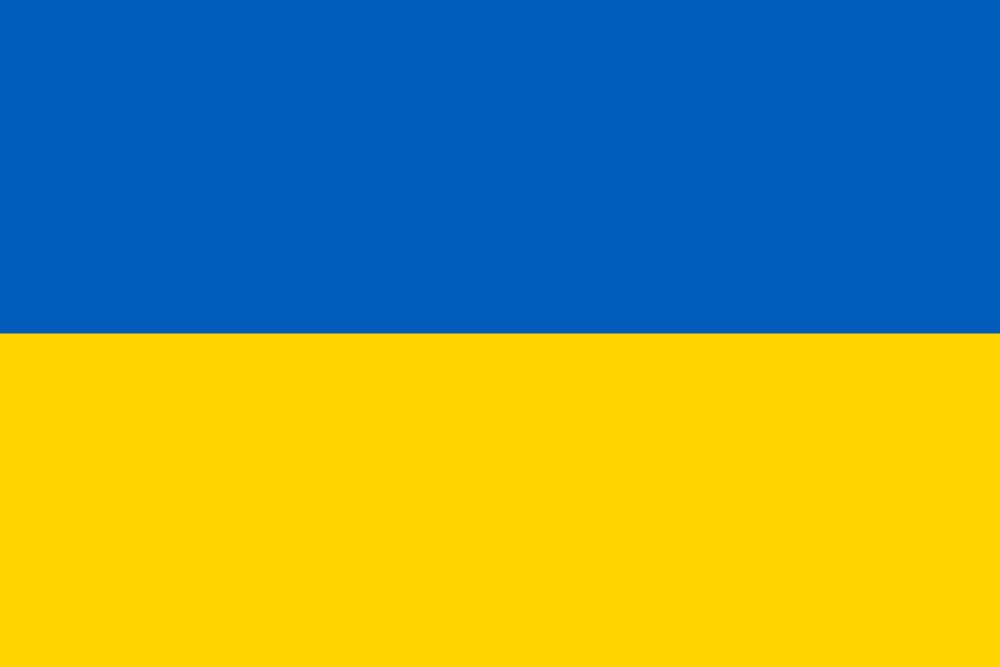Hostilities are taking place in the Luhansk, Donetsk, Kharkiv, Kherson, and Zaporizhzhia oblasts. Ongoing attacks are shadowed by the threat of a renewed offensive against Kyiv by the troops of the Russian Federation (hereinafter: Russia) expected to be carried out with the assistance of the Armed Forces of the Republic of Belarus (hereinafter: Belarus).
Russian troops have shelled and bombed the following cities and locations:
Mariupol
Myrhorod
Kharkiv – residential houses
Novodanylivka – reports of the use of white phosphorus munitions
Avdiivka – residential houses and urban infrastructure
Velyka Novosilka – residential houses
Chudniv – residential houses
Since the beginning of hostilities, 928 educational facilities and 189 cultural heritage sites have been damaged. Out of the educational facilities, 84 have been completely destroyed. More than 191 children have been killed and at least 349 injured due to the attacks.
As of today, 168 out of 1500 settlements liberated from Russian control have been demined. Demining efforts continue in the remaining territories.
Connections between Irpin, Bucha, Hostomel, and Vorzel to Kyiv have been re-established, and leaders of Poland, Lithuania, Latvia, and Estonia have visited the listed towns today.
According to the Ukrainian intelligence service, guerrilla fighting and armed resistance is taking place in the towns and villages under Russian control.
Economic and Political Dimensions
The Ukrainian economy is under immense strain due to ongoing hostilities. Nearly 2 million hectares or approximately 4,900 million acres of agricultural land have been sown despite the risks posed by mines, shelling, and hostilities.
The state-run program for business relocation has successfully transferred 300 businesses from combat
zones to western Ukraine.
According to the Ombudsman for Human Rights in Ukraine, Lyudmyla Denisova, hostilities conducted by the Russian forces pose significant environmental threats in the Kherson oblast. For example, ongoing and continuous shelling has killed 4 million chickens in the poultry farm, Ukrlandfarming, owned by Chornobaivska Agricultural Holdings. The dead birds have been buried in mass graves, risking the contamination of groundwater reserves.
Humanitarian Dimensions
Russian troops continue to conduct hostilities against the civilian residents of the territories they control. Civilians have been banned from evacuating to the government-controlled territories of Ukraine and efforts to forcefully deport people to Crimea, the Temporarily Occupied Territories of Donetsk and Luhansk Oblasts (TOTDLO), Russia and Belarus continue.
Educational institutions in the areas controlled by Russia are seeing increasing attempts to integrate the Russian curriculum into the school system. Additional language programs are being developed for Ukrainian children who do not speak Russian.
No humanitarian corridors have been agreed upon in Ukraine today. However, several transit routes have been opened in the Luhansk oblast.
Approximately 120 000 people remain trapped in Mariupol awaiting evacuation. Approximately 60 000 individuals remain in the outskirts of the city.
Information Warfare Dimensions
Russian sources continue to spread narratives regarding the violations of humanitarian and human rights laws committed by the Ukrainian army. In parallel, Russian officials have disseminated information about a humanitarian mission undertaken by Russian troops in support of agricultural activities in Kharkiv oblast. According to state sources, the UN has offered Russia a wide range of initiatives and several proposals aimed at solving the humanitarian crisis in Ukraine.
Russian media sources have published articles regarding the efforts of the Russian army to alleviate and reduce the suffering of Ukrainian civilians impacted by ongoing hostilities. However, many of the articles underscore that civilian collateral damage is inevitable for the successful denazification of Ukraine. According to Russian semi-official materials , “denazification” implies suppressing the ongoing, widespread Nazi ideology in Ukraine, while “deukrainization” is used to refer to acts countering “forced Ukrainization”.
As per Russian state sources, Ukraine continues to launch attacks on the Russian territory. An example of such hostilities is the alleged attack by gunfire on the border checkpoint in Gordeevka in the Kursk oblast. No casualties have been reported.
The Russian Ministry of Defense has announced a series of airstrikes to be launched on the decision-making centres (civilian infrastructure) in Ukraine should hostile acts continue on Russian territory. It is the first time that a threat or warning of the kind has been made by Russian officials. Meanwhile, air raid sirens go off about 10 times a day in Kyiv.
The detention of President Vladimir Putin’s friend, member of the Ukrainian parliament, and the leader of the pro-Russia party, Viktor Medvedchuk, by the Security Services of Ukraine, has drawn the attention of the Russian media and political circles. Following the detention, Russia’s Press Secretary, Dmitry Peskov, made a statement underscoring that Mr Medvedchuk has always called for peace and has never compromised his support for Donbas. However, as Mr Medvedchuk is not a Russian citizen, the Kremlin is unsure whether Mr Medvedchuk wishes Russian officials to get involved in his case. Related developments regarding Mr Medvedchuk’s case include:
The Head of the Investigative Committee of Russia, Alexander Bastrykin, has instructed the Committee to investigate the legitimacy of Mr Medvedchuk’s detention as well as Ukraine’s proposal for an exchange of prisoners of war for his release.
Mr Medvedchuck’s wife, Oksana Marchenko, has recorded a video requesting the Turkish President, Recep Tayyip Erdoğan, to assist in the release of her husband.
Russian media outlets continue to spread information regarding the low morale of Ukrainian soldiers, claiming that they are “cannon fodder”and puppets of Ukraine’s political leadership.
According to Russian sources, the relocation of Ukrainian children to Russian territories is a humanitarian initiative.
The Russian Ministry of Education is drafting international agreements enabling Russian families to adopt children and orphans deported from the so-called Donetsk People’s Republic, Luhansk People’s Republic, and Ukraine. The initiative was announced by the Director of the Department for Children’s Rights Protection State Policy, Larisa Falkovskaya, at the Life and Upbringing in a Family conference.
This Ukraine Situation Report is prepared in the framework of the project “Building Resilience in Conflict Through Dialogue” funded by the European Union


